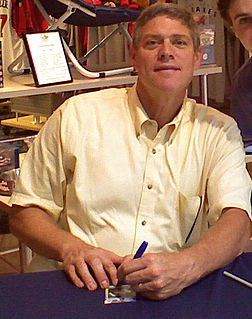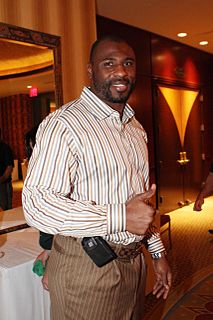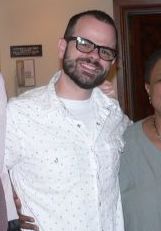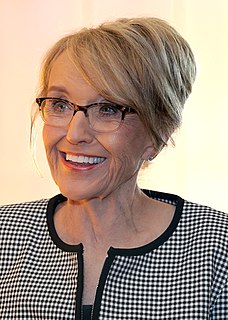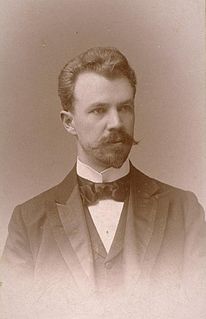A Quote by Dale Murphy
I don't agree with everything that any of our political leaders say or believe - that's going to happen sometimes.
Quote Topics
Related Quotes
It's not enough, is it? Just to follow; just to have faith in someone bigger and smarter and better informed. That's how we're built, that's how every Partial is wired - to follow orders and trust in our leaders - but it's not enough. It never has been. We've followed our leaders, and sometimes they win and sometimes they lose; we do what they say and we play our part. But this is our decision. Our mission. And when we're done, it will be our victory, or our defeat. I don't want to fail, but if I do, I want to be able to look back and say, 'I did that. I failed. That was all me.
As I travel around the world, it's fascinating; European leaders, Asian leaders, they all say to me, America is actually poised to be the world leader for another century - if we can fix some of this political dysfunction. ... We've got a lot of national security challenges, but if we get our economy together, and if we can get our political system to work well, I am really confident about our future.
Everybody was going along thinking that it was a day like any other day, and bang, down went the Twin Towers. Changed everything. So you can't really predict the future, but you can say, "Boy, are those glaciers ever melting." You can measure that, and you can say, "When they're all melted there won't be any Athabasca River," and you can say, "What will happen to the oil sands then?" because you need a lot of water to make that oil. "Where's that going to come from?" You can say things like that.
I try to love my neighbor as myself but I'm not trying to be a people pleaser. Sometimes that's hard, because my human nature is to want people to be happy with me. But sometimes I feel my convictions are so great that it would be compromising the truth if I didn't do that. So sometimes it's a struggle to say, "This is what I think; this is what I believe, and if you don't agree with me, oh well." The hardest thing for people to accept is the gay-affirming issue. It's hard for people to agree to disagree on that one.
My mother-in-law and I have really worked on our relationship. It did not happen out of the blue. What works for us is that both of us are very strong women, we walk the line and come to a meeting point. We do not necessarily agree on everything but the one thing we agree on is the fact that we love each other and our intentions are right.
The Bauls say, "Don't try to force anything." Let life be a deep let-go. See God opening millions of flowers every day without forcing the buds, waiting, never in a hurry, giving their time to them. The Bauls say, "Everything happens at its right time, everything happens in its own season. Wait, don't be impatient, don't be in a hurry. All hurry is greed, and all hurry is a subtle fight." That which is going to happen will happen. Whenever it is going to happen it will happen; you need not fight existence. You can surrender, you can trust.
Expectations are usually predicated on the idea that the everyday things that happen to ordinary people shouldn't happen to you. People hold the idea of being ordinary in absolute contempt, so when they face an illness, poverty, or any kind of catastrophe, they say, 'I can't believe this happened to me.' And who did you think it was going to happen to - the woman across the street?
We cannot be secure by limiting our liberties, as some of our political leaders are demanding, but only by expanding themWe should take our example not from the military and political leaders shouting 'retaliate' and 'war' but from the doctors and nurses and firemen and policemen who have been saving lives in the midst of mayhem, whose first thoughts are not violence, but healing, and not vengeance, but compassion.
Any comprehensive doctrine, religious or secular, can be introduced into any political argument at any time, but I argue that people who do this should also present what they believe are public reasons for their argument. So their opinion is no longer just that of one particular party, but an opinion that all members of a society might reasonably agree to, not necessarily that they would agree to. What's important is that people give the kinds of reasons that can be understood and appraised apart from their particular comprehensive doctrines.
